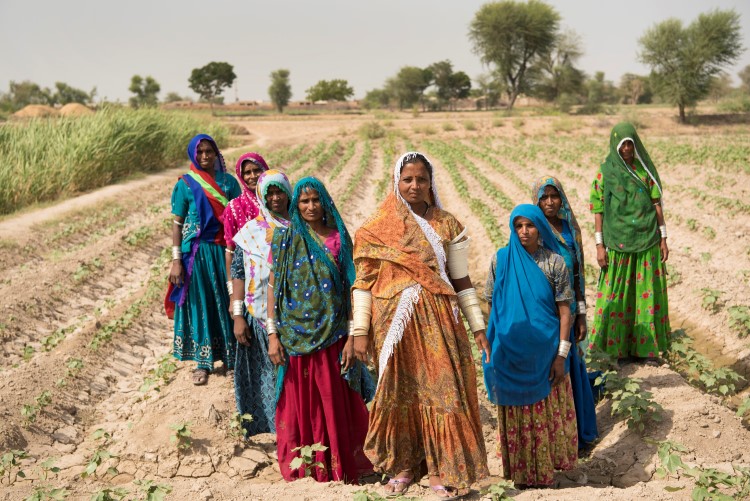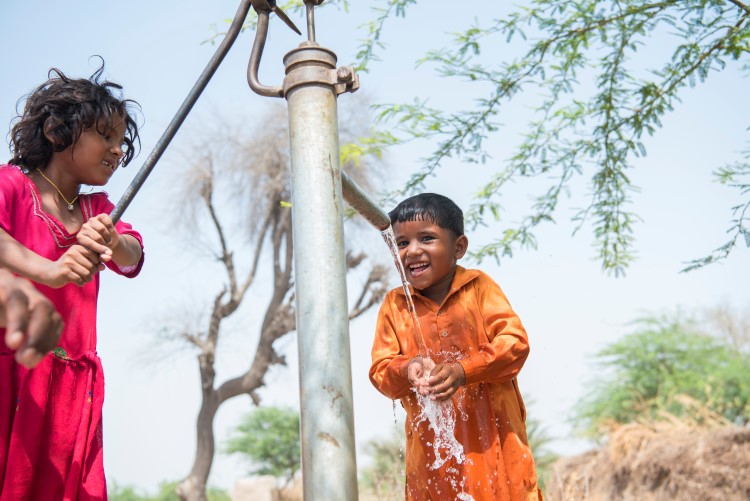Norwegian Church Aid in Pakistan
- Presence established: 1982 (Also provided support in 1956, 1969-1978)
- Funds used in 2022: 33.9 million NOK
Our work in Pakistan focuses on five topics: Climate Resilient Water, Sanitation and Hygiene; Climate Smart Economic Empowerment; Faith-Based Climate Action; Cultural Cohesion, Understanding & Diversity; and Gender Equality, Protection & Respect
Pakistan is a geographically and culturally diverse country. With nearly 208 million people, it is the fifth most populous country in the world. Slow economic growth, poverty, unemployment, religious extremism, unequal distribution of wealth, illiteracy, and youth bulge are key challenges faced by the country. The situation for women has improved slightly in the health, education, economy and political sectors, but stark gender disparities still exist. Protection rights of vulnerable women and religious minorities are dishonoured. This is documented in the Global Gender Gap Index where Pakistan ranks 148 out of 149 countries.

On the Global Climate Risk Index, Pakistan is the seventh most vulnerable country to climate change, and third among countries facing acute water shortages. Weak water, sanitation and hygiene (WASH) services and infrastructure affects the health and protection of women and girls in particular. Both civil society and faith actors are open to collaborate on climate action. This means the government’s Clean Green Pakistan campaign provides an opening for NCA, civil society, faith actors and government bodies to work together on climate issues.
NCA began working in Pakistan in 1982, providing humanitarian assistance to Afghan refugees fleeing their country. A humanitarian response was also provided for communities affected by the devastating 2005 earthquake, and from 2007 NCA expanded its operations to include long-term development programmes. Partnering with civil society actors is NCA’s primary approach to fulfilling its mandate to strengthen civil society. In Pakistan, partnership with local, national and regional actors is crucial to strengthening these civil society actors. Close collaboration with faith-based actors contributes to a high level of legitimacy in local communities, making it possible to reach the most vulnerable in Pakistan.

NCA contributes to a just and prosperous Pakistan where all citizens enjoy equal rights and opportunities. Together with Pakistani civil society organizations, national partners, academic institutions, and government agencies NCA implements long-term development and humanitarian programmes in:
Pakistan’s humanitarian response is primarily delivered through WASH interventions to communities hit by natural and man-made disasters. Humanitarian WASH interventions adhere to SPHERE standards and incorporate community empowerment, and gender and conflict sensitivity. Environmental impact is also assessed, and interventions are designed accordingly. The humanitarian interventions are delivered in two District of Sindh (Umerkot and Sanghar) and in two districts of Khyber Pakhtunkhwa (Shangla and Tribal District of North Waziristan). 147,558 beneficiaries (29,512 women, 35,414 men, 39,841 girls and 42,792 boys) were reached through the provision of life saving WASH assistance from 2016-2019.
In Pakistan, NCA aims to empower and create resilient communities leading climate change action for a discernible improvement in the quality of Pakistanis lives through cultural cohesion and understanding diversity, gender equality, protection, respect, faith-based climate actions, and climate resilient WASH.
NCA in Pakistan implements programmes in 15 districts across three provinces; Khyber Pakhtunkhwa, Punjab and Sindh. The interventions target women, girls, men, boys, people with disabilities, youth, and elderly people. Interventions also target civil society organisations and institutions such as state bodies and political representatives.